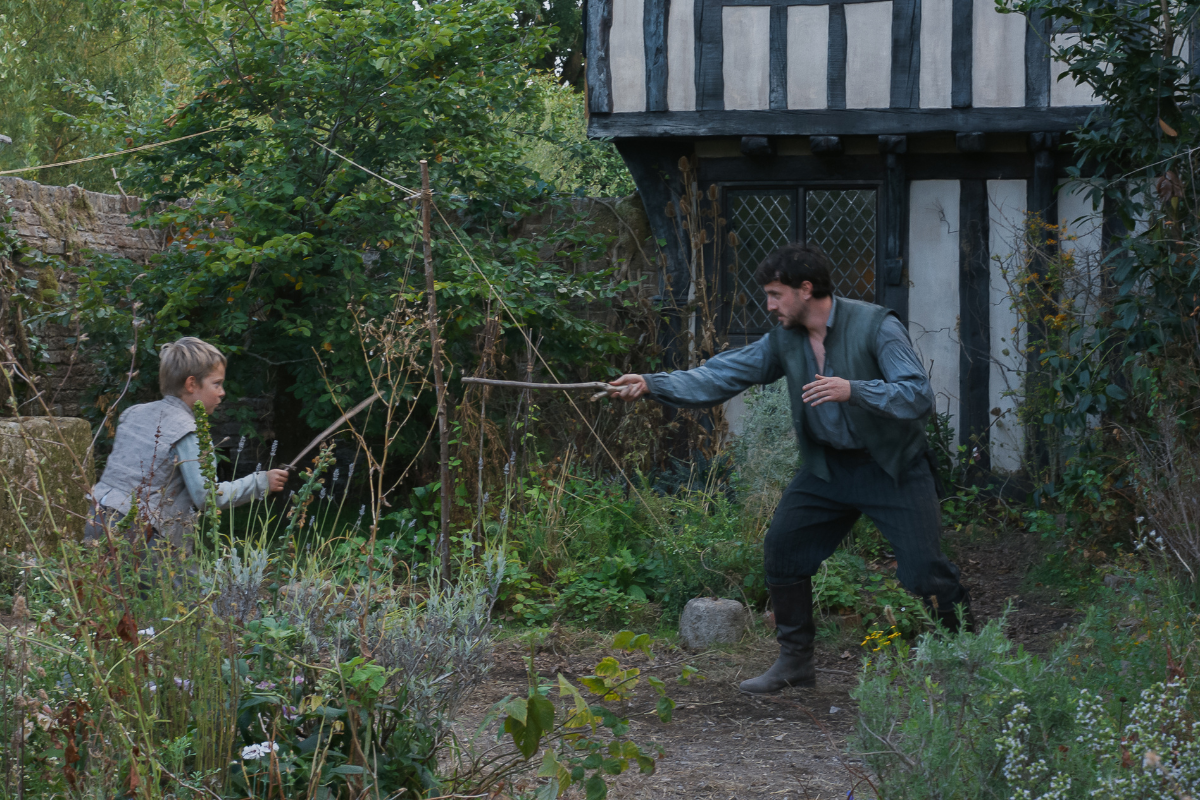How Do I Write Sex and Action?
It’s appealing to write detailed scenes of action or intimacy. But the reality is in doing so we’re slowing down a script’s momentum and risking boring industry experts.
It’s tempting to show off when you write a screenplay. We’ve all felt the temptation to throw in a wildly inventive action and/or sex sequence. But instead of wowing your reader and possible employer, what you might be doing is wasting their time, and showing them something you may not want to reveal.
Sex and action scenes are tough. We’re told as screenwriters it’s all about brevity and avoiding huge chunks of scene description that make your script look like a novel. So, how do you work in that super cool car chase or intensely erotic sex moment without giving the reader all the imaginative details? How do you build that sense of tension in action, or whatever you want in sex, by sticking to the “fewest words possible” mantra that should be in the back of your mind? The answer is simple: No one cares.
I know that sounds harsh. But here is the reality … anyone in the industry reading your script doesn’t have a bunch of free time and is reading to see if you have solid command of storytelling craft. Can you create impactful characters and drag them into your story so they lose track of the page count or the texts pinging on their phone? Which they may be using to read your script. That’s what that care about. They’ve told me.
Detailed, heavily choreographed action scenes don’t add much to a script. In fact, they do the opposite, they slow down the reading, and soften the momentum. I’ve had more than one talent rep/producer tell me they often skim a chunk of action to see if any of the leading characters die. That’s how valuable (or not) those scenes are. The more highly detailed, usually the more boring. Sex scenes have a similar issue. Reading about whose hand is where and whose mouth or any other body part is specifically doing what to whom usually doesn’t add much to the script. Instead, it often signals bigger issues with the story, and often the writer themselves.
If we step back and understand the purpose of a spec script (a script you write without anyone telling you or paying you to write it), we remember it’s really a calling card for your skills. Your chance to show you have learned the craft and you’re ready to join the show. Your craft is writing. Not stunt coordination, intimacy coordination, or directing. The more space you give to showcasing things that aren’t writing, the less time you have to show your true skills.
Now before you panic that I may be suggesting you scrap these scenes entirely … rest assured, I am not. If you’re writing an action movie, you need action. But action scenes don’t need a lot of specifics. They only need to focus on what you want the audience to learn by watching the scene. As in, does it reveal the main character’s special physical ability, or quick thinking, or outstanding driving ability, or willingness to take crazy risks, or fight to protect someone or something? Or what choices they make? How are you using this moment of action to give the audience further insight about your main character, and what they are willing to do to get what they want, or avoid what they don’t want? That’s about it. If you haven’t thought that through – then your lengthy, detailed action scene will appear soulless and dull, no matter how creative the car crashes.
Sex scenes are even riskier. I’m all for sex scenes, but again, they need a specific purpose. You are showing the dynamic/tension between the two, three, or however many characters engaged in the moment. You are setting a tone, or establishing an intimacy/relationship that will matter later. Or you’re revealing a character has a particular fetish that is important for us to know about. You are not writing literary erotica. Save that for your OnlyFans account.
Here's the unintended consequence if you focus too much on your action/sex scenes. You risk telling the reader you might be more excited about writing car chases, or sex stuff than you are about writing an actual movie. If you think we don’t notice this stuff…think again. Sex wise—and I’ve seen this more than I want too—you risk revealing that you might have issues writing female characters. You may think a detailed description of a woman’s anatomy is scene setting, when it can read as just plain creepy objectifying. You may think the way a man is treating a woman is strong and masculine, when it reads much worse than that. And your scenes may feel more like personal pleasure pages, than active contributors to a meaningful screenplay.
Think about why your scenes are in your script, and what you want them to reveal to the audience about your characters, and try not to get distracted by the joy you may have in inventing innovative action or sex sequences.
The good news in all this: Now you don’t have to worry too much about these scenes. Throw in enough to show you know what you’re doing, and then get back to the job you want to be paid to do—writing a story that entertains millions of strangers all over the world.
Tim Schildberger is an experienced writer, script coach, author and co-founder of Write LA - an annual screenwriting competition which gets winning writers read by Literary Managers. Tim works with writers to improve their emotional connection with their stories and characters - a crucial element needed to launch industry careers. He’s also a journalist, one of the key members of ‘Borat’, creator of ‘Lawrence of America' for the Travel Channel, host of the podcast ‘Script, Mate!’, and author of popular screenwriting book ‘The Audience and You’ available on Amazon and wherever good books are sold. In his spare time, Tim is a parent, tennis player, and fan of Australian Rules Football. For more of Tim's tips and opinions - Instagram: @writela







